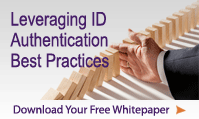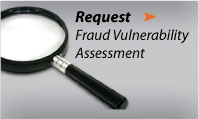
FTC Privacy Act
The Federal Trade Commission Privacy Act
Increase Compliance, Maximize Fraud Protection & Reduce ID Theft
FTC's Privacy Rule means added safeguards to prevent theft and deter Fraud
The Federal Trade Commission's Financial Privacy Rule ("Privacy Rule") was  issued to satisfy one of the three main requirements of the Gramm-Leach-Bliley Act (GLBA).
issued to satisfy one of the three main requirements of the Gramm-Leach-Bliley Act (GLBA).
Who must comply with FTC’s Privacy Rule?
The Privacy Rule applies to “financial institutions.” Under the FTC's jurisdiction, such institutions include nonbank companies that engage in a wide array of financial activities such as: lending; brokering or servicing any type of consumer loan; transferring or safeguarding money; preparing individual tax returns; providing financial advice or credit counseling; providing residential real estate settlement services; collecting consumer debts; and various other activities.
The Commission also protects consumer privacy under the Fair Credit Reporting Act and the Children's Online Privacy Protection Act.
As part of its implementation of the GLBA, the FTC issued the Safeguards Rule, which requires financial institutions to have measures in place to keep customer information secure.
The Safeguards Rule
The Safeguards Rule applies to all businesses, regardless of size, that are “significantly engaged” in providing financial products or services. These include, for example, check-cashing businesses, payday lenders, mortgage brokers, nonbank lenders, real estate appraisers, and professional tax preparers. The Safeguards Rule also applies to companies like credit reporting agencies and ATM operators that receive information about the customers of other financial institutions.
Non-Bank Covered Activities: The Privacy Rule applies to businesses who:
- Extend credit to someone (for example, through a retail installment contract) in connection with the purchase of a good or service for personal, family, or household use;
- Arrange for someone to finance or lease a good or service for personal, family, or household use; or
- Provide financial advice or counseling to individuals.
If you are engaged in the activities described above, it should be noted that any personal information that you collect to provide these services is covered by the Privacy Rule. Examples of personal information include someone’s name, address, phone number, or other information that could be used to identify them individually.










